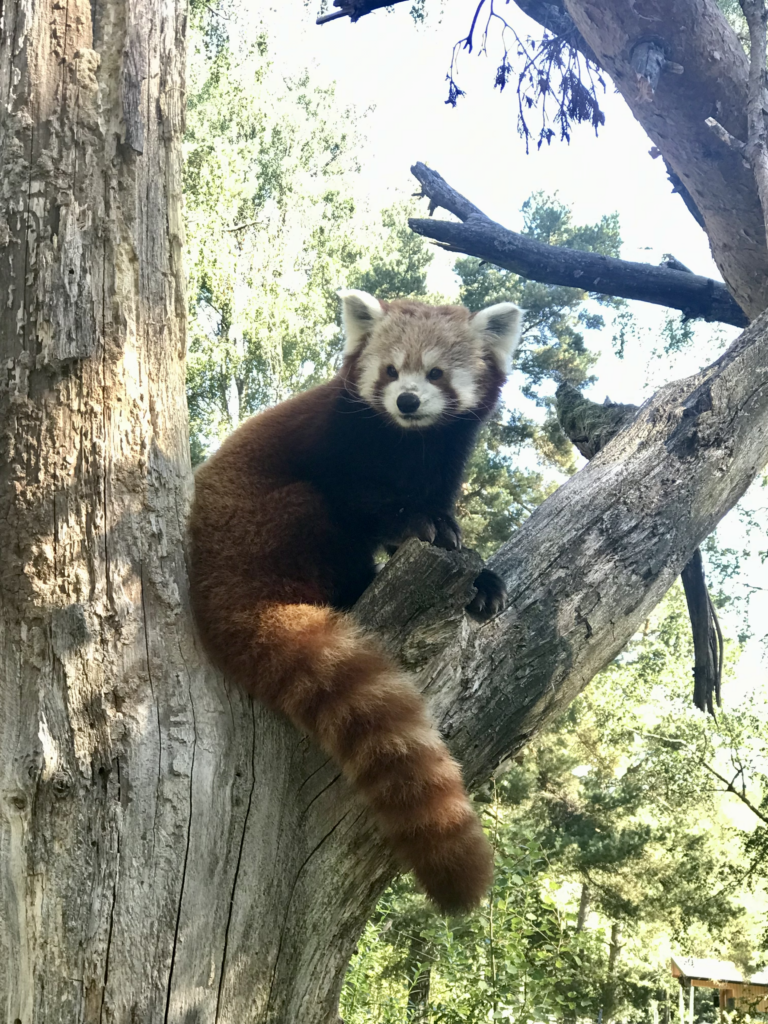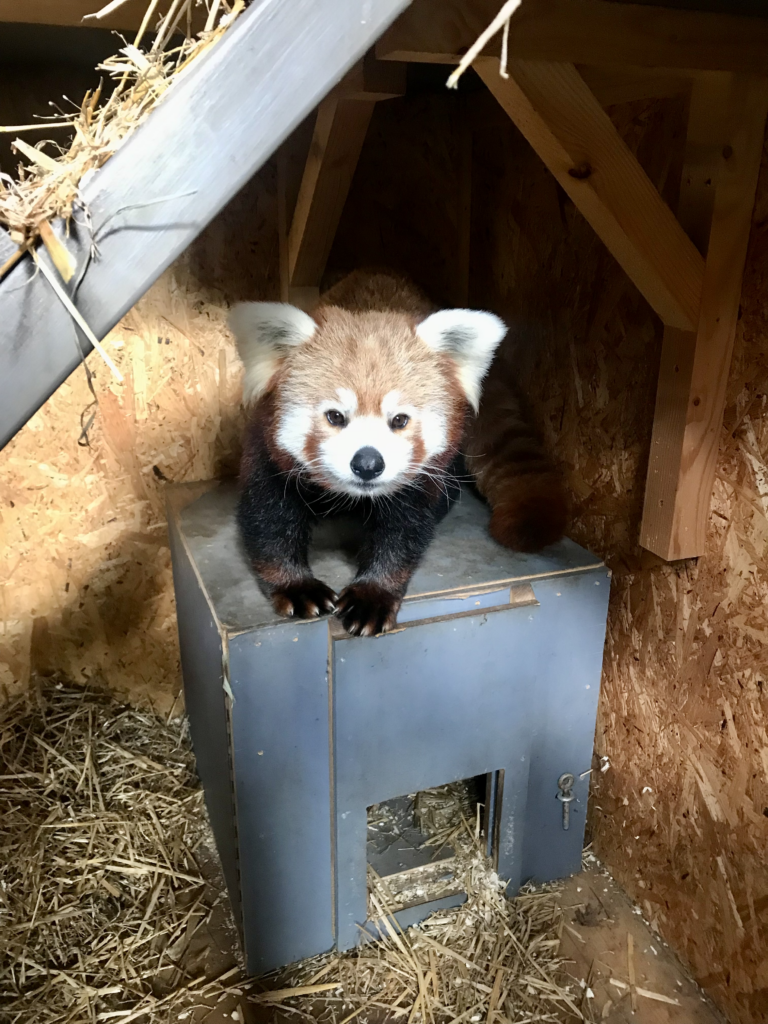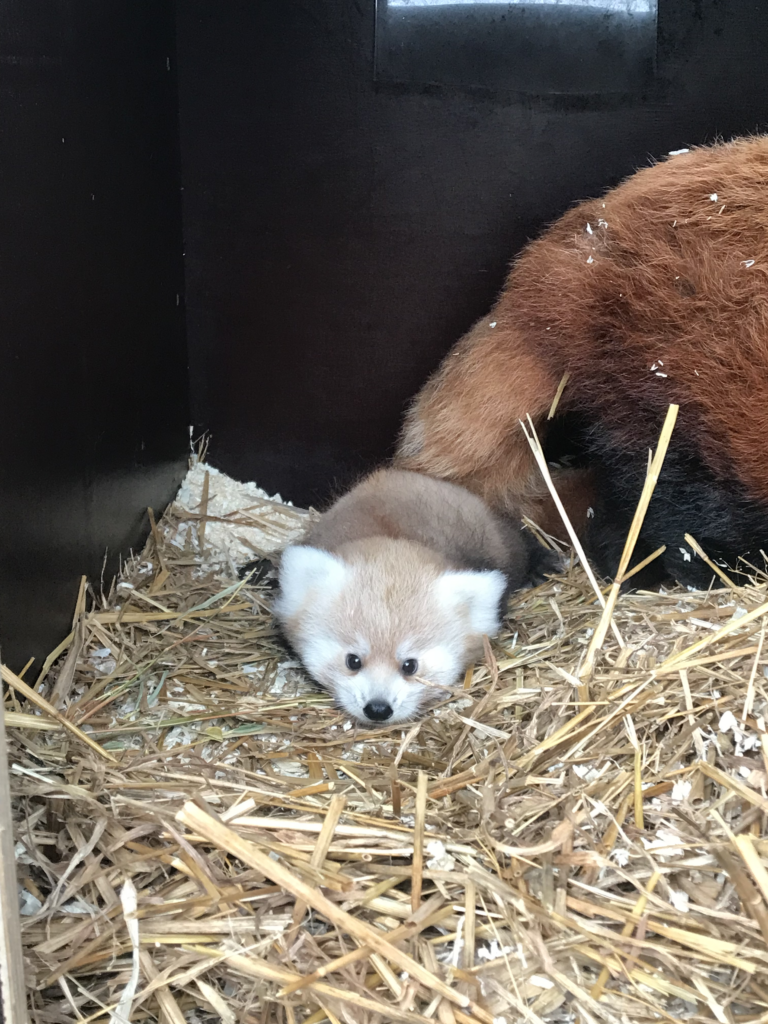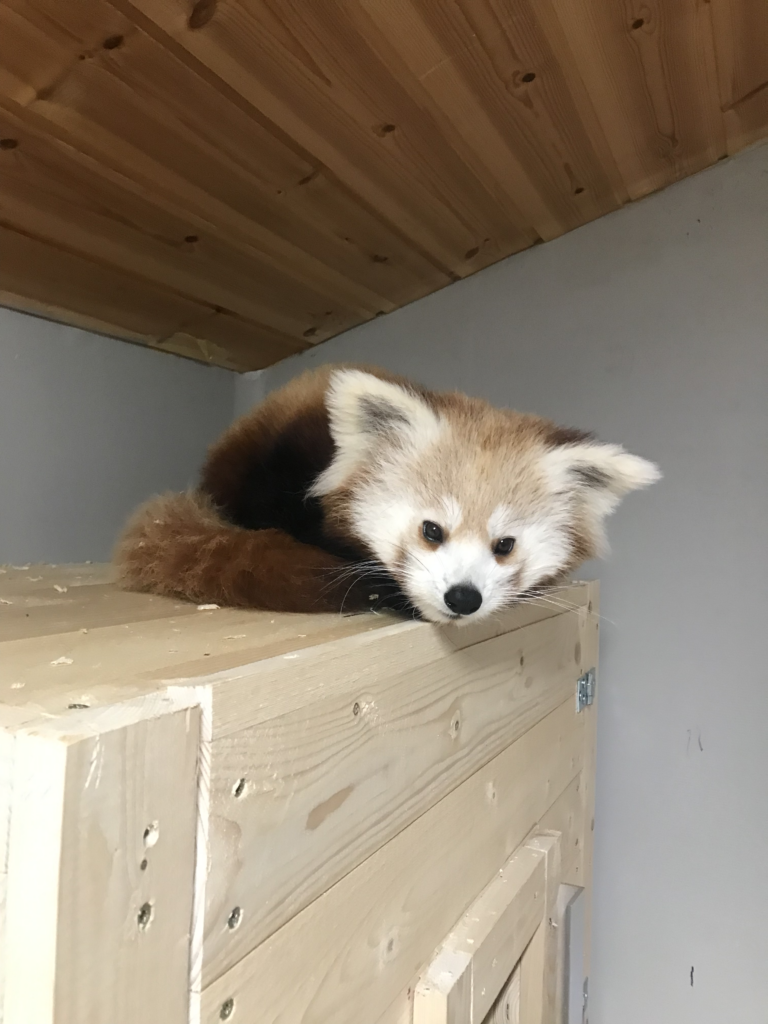Animals
- Three red pandas (Ailurus fulgens) maintained at Borås Djurpark in Sweden:
A mated pair
Shifu: 9 years old, ♂

Wanju: 7 years old, ♀

and their offspring
Laya: born on June 24th, 2022, ♀


- The enclosure:

- Feeding time:
- Between 9:00 and 9:30am
- Between 4:30 and 5:00pm
- Bamboo and berry plants were planted in the outdoor enclosures mid way through data collection
Experimental Procedure
- Observation from outside the enclosures: 4 hours per day between 8:30 am and 5:00 pm for 10 weeks
- Scan sampling at two-minutes intervals
- Ethogram of 13 behaviours (Table 1): Eating, Drinking, Resting, Moving, Self-grooming, Allo-grooming, Exploratory, Alerting, Food foraging, Playing, Aggression, Out of sight
- Inter-individual distance into categories (Table 2): Touching, Very close, Close, Far
“Red panda experience”
- Zoo opened 9 days during the study period
- “Red panda experience” occurred on 6 of them
- The “Red panda experience”:
- Maximum 4 visitors:
- They received an information session from the zookeepers about their work with the red pandas and the importance of conserving them
- They had the opportunity to enter the enclosures and houses and give the red pandas their morning meal
- Lasted 30 minutes
- Mealtime delayed of 2 hours
- Maximum 4 visitors:
Data Analysis
Behaviour
- Activity budgets for each individual and for all three combined
- Correlation of the most frequently displayed behaviours with week:
- Resting
- Moving
- Correlation of the cub growth-related behaviours with time:
- Alert
- Self-grooming
- Exploratory
- Food foraging
- Playing
- Aggression
- Hourly activity rate
Public
- Comparison hourly activity rate between days with visitors and days without
Temperature
Daily average temperature of Borås
- Correlation between activity rates of each individuals and all combined and temperature
- Correlation between distance categories and temperature
Distance
- Proportions of distance categories for each individual and for all three individuals combined
- Correlation between distance categories and week
- Aggression
- Frequency counted for each distance category between Laya and Shifu
- Percentage of Aggression over all behaviours when Laya and Shifu were Touching or Very close
- Percentage of Aggression that occurred when Laya and Shifu were Touching or Very close over all distances between all individuals
“Red panda experience”
- Comparison hourly activity rate between days with visitors and days without
- Comparison of the proportions of each behaviour during the 30 minutes prior to the morning meal with control days (days without the “experience”)